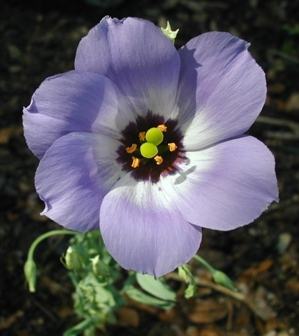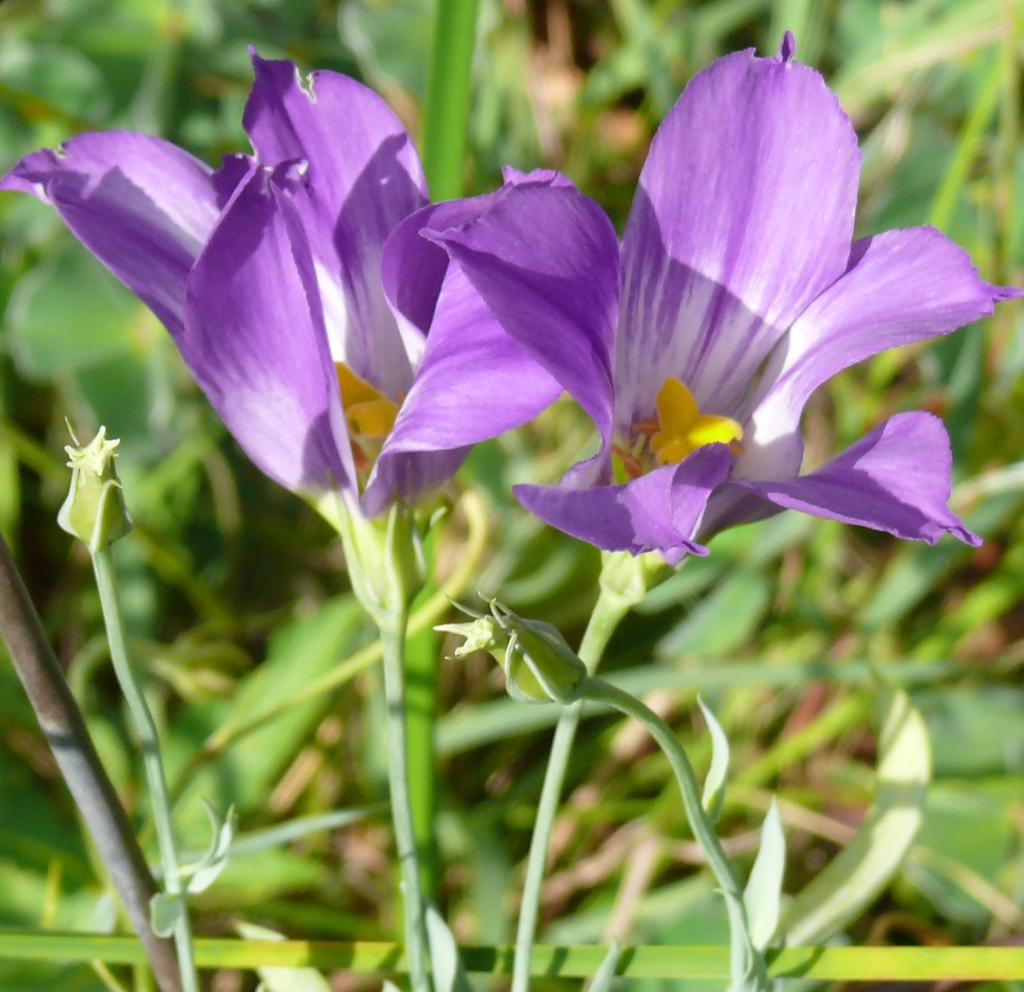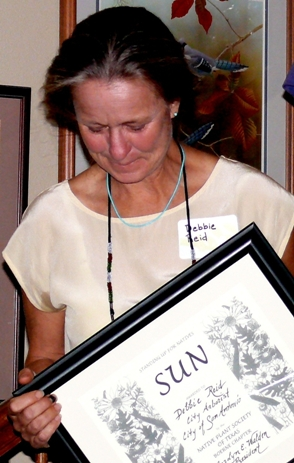Author: Bill Ward
It is difficult to find anything to like about this exceptional drought we continue to suffer, but in this part of the Hill Country, at least it seems to have brought out more bluebell gentians than I’ve seen in a long time.

The showy blue-purple blooms of the bluebell make it a favorite wildflower. Supposedly, those eye-catching flowers have led the plant to extinction in certain places where people could not resist picking them all.
The bluebell gentian is the namesake for the popular Blue Bell Ice Cream, which originated in Brenham in 1907. Bluebells may occupy whole fields in the Brenham area. What a sight when they are in bloom!
In Kendall County, even during this dry period, there have been bluebells in many low, moist(?) places such as the Cibolo Nature Center marsh (now dry), various places along Cibolo Creek southeast of Boerne, and on the banks of the Guadalupe River at Kendall County’s newly acquired parkland. I don’t remember seeing so many in this area for several years. Some authors say they are biennial or short-lived perennials, which may partly explain their apparent relative abundance this year.

Bluebell gentian (Eustoma grandiflorum or russellianum) is a widespread species, growing in the wild throughout the central US and into Central America. Some botanists divide the Texas bluebell gentians into two species based mostly on supposed differences in flower width. The prairie bluebell (E. exaltatum), according to some botanists, is a separate species, but others think all the bluebells are subspecies of a single species. I’m sure DNA testing will soon resolve the discussion.
Among the Texas bluebell gentians there is variation in color, including purple, blue, pink, and white. Horticulturists have developed a number of cultivars from these different color varieties and introduced them to the nursery trade. Bluebell gentians, probably from Texas, have been cultivated in Japan for many decades.
As the common name implies, the bluebell is a member of the Gentian Family, which also includes the three kinds of pinks (Centaurium sp.) common to the Hill Country. The bluebell gentian is not to be confused with the rare Texas bluebell (Campanula reverchonii), an endemic which today grows only on granite and metamorphic rock of the Llano Uplift. As an interesting aside, there is one historic record of the Texas bluebell having been collected in Kendall County near Waring.
SUN Award to Debbie Reid
The Boerne Chapter of the Native Plant Society recently presented Debbie Reid with the SUN Award (Standing Up for Natives Award). Reid has been one of this area’s most innovative and influential stewards of native plants and the general ecosystem.

During the mid 1990s, she was a Naturalist at Friedrich Park in northwestern San Antonio. While there, Debbie conceived of the Master Naturalist program. Texas Parks and Wildlife Department urban biologists Rufus Stephens and Judit Green and others helped her create and implement the Texas Master Naturalist training classes, first held at Friedrich Park. Now there are at least four Master Naturalist programs in the Hill Country and many more around the state. This volunteer program also has spread to over 30 other states and another country. That effort alone is an impressive legacy for Reid.
In 1997, she was hired to be the first and only Arborist for San Antonio when the city adopted its first tree-protection ordinance. To better understand urban development, Reid went back to her alma mater Texas A&M to take a class in heavy machinery. In trying to enforce the tree ordinances in San Antonio, most developers and environmentalists alike found her to be knowledgeable, fair, and willing to work hard to find equitable compromises.
Debbie Reid recently resigned from the San Antonio job to go to Mexico with the Peace Corps. She hopes to work with federal and local government agencies to improve forestry practices in Mexico. Another pioneering adventure for this creative ecologist!
